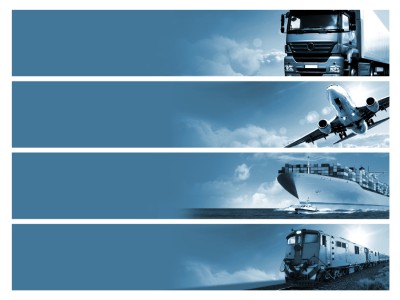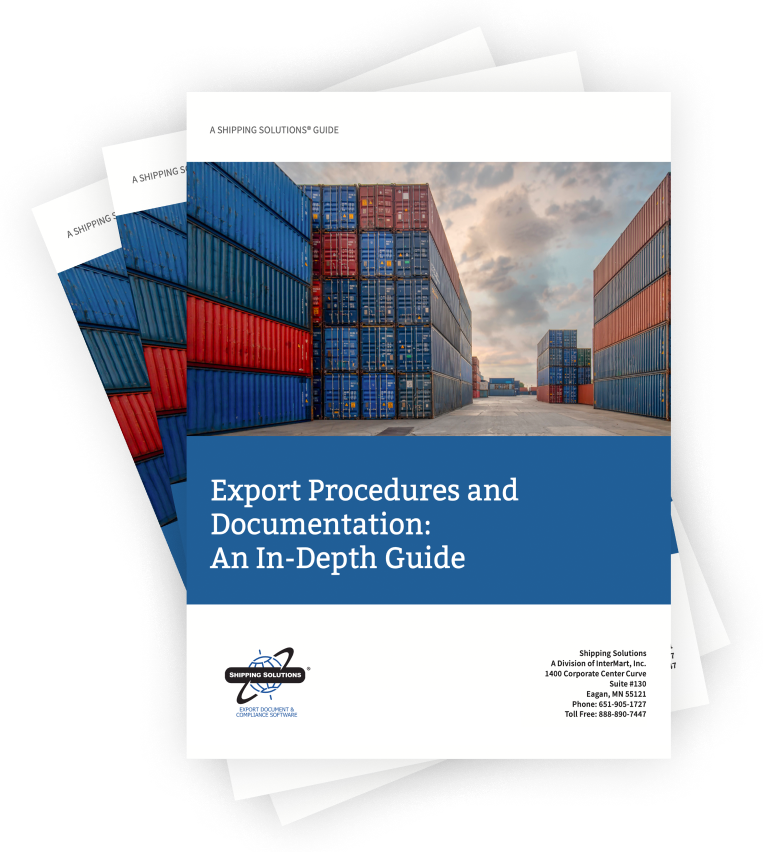The International Trade Blog International Sales & Marketing
NVOCC vs. Freight Forwarder: What's the Difference?
On: June 9, 2025 | By:  David Noah |
7 min. read
David Noah |
7 min. read
 There are many different parties involved in the logistics process—carrier, freight forwarder, NVOCC, 3PL, EMC, ETC, customs broker, etc.—several of which can be involved in a single transaction! Two of the most similar parties are freight forwarders and Non-Vessel Operating Common Carriers (NVOCC).
There are many different parties involved in the logistics process—carrier, freight forwarder, NVOCC, 3PL, EMC, ETC, customs broker, etc.—several of which can be involved in a single transaction! Two of the most similar parties are freight forwarders and Non-Vessel Operating Common Carriers (NVOCC).
While most exporters can happily get by without knowing the difference between an NVOCC and a freight forwarder, there are some important distinctions between the two. In this article, I’ll discuss the specific functions of each and how to identify the right partner for your needs.
NVOCC: A Definition
A Non-Vessel Operating Common Carrier (NVOCC) performs the functions of an ocean carrier but does not operate the ships. Instead, an NVOCC buys space from carriers and sells this space to shippers. The NVOCC takes on some of the responsibilities and liabilities of the carrier, including issuing a house bill of lading.
Freight Forwarder: A Definition
Freight forwarders are experts within the supply chain who concentrate on the logistics and physical transportation of cargo. They work with any carrier in the international transportation process who handles moving goods via truck, boat, plane or a combination thereof. Think of them as a travel agent for your products who will not only arrange shipping from various points in the journey but will also help facilitate that transport. They are your conduit with domestic and international carriers.
Key Differences Between NVOCCs and Freight Forwarders
- You must be a freight forwarder to be an NVOCC, but not all freight forwarders are NVOCCs.
- NVOCCs always arrange ocean transportation; freight forwarders may arrange ocean, air or inland transportation up to a specified point in the journey where the importer’s (or buyer’s) agent takes control of the movement of goods based on the Incoterms 2020 rule agreed upon by the seller and the buyer.
- NVOCCs are permitted to add a profit percentage to their rates. Freight forwarders are only allowed to add operational fees.
- An NVOCC is an intermediary between the shipper and the vessel operator and issues their own bills of lading. A freight forwarder is an authorized agent acting on behalf of the shipper. For an additional fee, the freight forwarder will generate the required documents, file electronic export information through the Automated Export System (AES) and provide other services.
- While both ocean freight forwarders and NVOCCs must obtain an Ocean Transportation Intermediary (OTI) license from the Federal Maritime Commission (FMC), the requirements for obtaining one are different for freight forwarders and NVOCCs.
Freight Forwarder vs. NVOCC: At-a-Glance Comparison
| Feature | Freight Forwarder | NVOCC |
|---|---|---|
| Type of Service | Coordinates cargo movement with carriers | Performs functions of ocean carrier but does not operate vessels |
| Bills of Lading and Other Documents | Will generate export documents for an extra cost | Issues own bills of lading |
| Modes of Transport | Ocean, air and inland transportation | Ocean freight only |
| Profit on Freight Charges | Can only add operational fees | Can mark up freight rates for profit |
| Regulatory Authority | Licensed as Ocean Transportation Intermediary (OTI) by FMC | Also licensed as OTI by FMC, with different requirements |
| Ideal For | Exporters seeking end-to-end logistics support | Experienced shippers booking ocean space |
When and How to Choose an NVOCC
So how do you decide if you should work with an NVOCC or a freight forwarder for your international shipment? Basically, it comes down to the level of service you need. If you know what you’re doing and only need to book passage on an ocean vessel, working directly with an NVOCC will probably save you money. A freight forwarder, on the other hand, will work with your company to identify the best route for your goods, negotiate the best rate for the shipment and provide additional services and advice that is usually well worth the additional expense.
As you grow your relationship with a freight forwarder, it’s important to periodically discuss your needs and evaluate their offerings to better understand what they do and the services they provide. If you eventually need an NVOCC, ask your freight forwarder for a recommendation. Or, consider whether it will be helpful to simply work with a company that combines the two.
You can read more about choosing the best partners for your company in the following articles:
- Who’s Who in Export Logistics
- 4 Things the Best Freight Forwarders Have in Common
- 4 Steps for Ensuring a Good Relationship with Your Freight Forwarder
- Freight Forwarder vs. 3PL Services: Which Do You Need?
NVOCC vs. Freight Forwarder: FAQs
-
What is the difference between a freight forwarder and an NVOCC?A freight forwarder acts as a logistics coordinator on behalf of exporters, arranging transportation across various modes and carriers. An NVOCC operates more like an ocean carrier—without owning vessels—by purchasing space from shipping lines and selling it to shippers. They also issue their own bills of lading.
-
Is it cheaper to use an NVOCC or a freight forwarder?It depends on your needs. NVOCCs may offer lower rates for ocean freight if you already know what you’re doing and only need port-to-port service. Freight forwarders charge more but offer value-added services like route planning, customs coordination and documentation assistance.
-
Can a company be both a freight forwarder and an NVOCC?Yes. Many companies are licensed to operate as both. This allows them to offer end-to-end logistics services while also issuing bills of lading when acting as an NVOCC.
-
Do freight forwarders and NVOCCs both need to be licensed?Yes. Both must be licensed as Ocean Transportation Intermediaries (OTIs) by the Federal Maritime Commission (FMC) to legally operate in the U.S. The licensing requirements, however, differ between the two roles.
-
Which should I choose for my exports—an NVOCC or a freight forwarder?If you need help navigating international logistics, working with a freight forwarder is often the best choice. If you have experience and only need ocean space, going directly to an NVOCC may save money. Some companies offer both services under one roof for flexibility.
The Bottom Line
Whether you’re working with a freight forwarder or an NVOCC that is part of a freight forwarding business, you can’t recuse yourself from your documentation and compliance responsibilities. Remember: You can outsource responsibility, but you can’t outsource liability.
Whether you do your own AES filing or a forwarder files for you, whether you’re doing a standard export or routed export transaction, you're still responsible and ultimately liable for your shipments. Shipping Solutions export documentation software can help you make sure your paperwork is shipshape in every situation. Get a free demo right here!
Like what you read? Subscribe today to the International Trade Blog to get the latest news and tips for exporters and importers delivered to your inbox.
This article was first published in August 2021 and has been updated to include current information, links and formatting.

About the Author: David Noah
As president of Shipping Solutions, I've helped thousands of exporters more efficiently create accurate export documents and stay compliant with import-export regulations. Our Shipping Solutions software eliminates redundant data entry, which allows you to create your export paperwork up to five-times faster than using templates and reduces the chances of making the types of errors that could slow down your shipments and make it more difficult to get paid. I frequently write and speak on export documentation, regulations and compliance issues.


